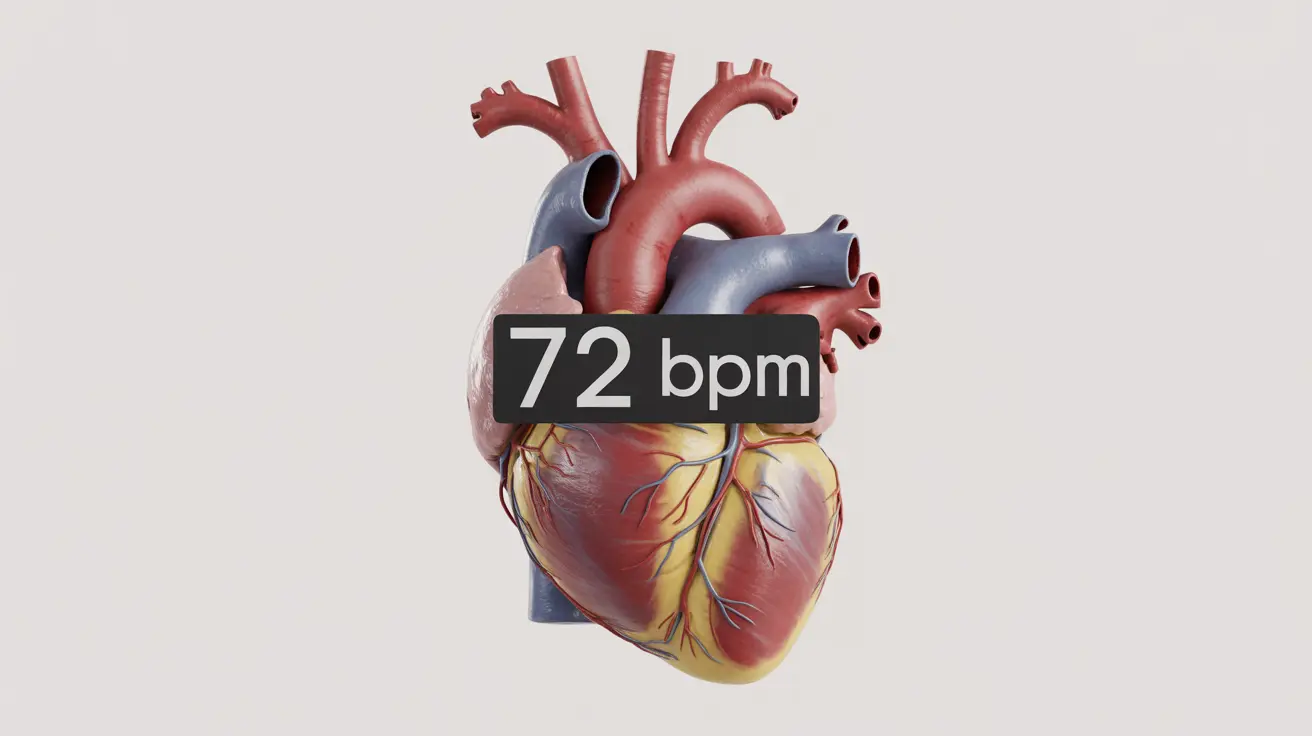Your resting heart rate is a key indicator of your cardiovascular health and overall fitness level. This vital sign can tell you a lot about your heart's efficiency and how well your body functions at rest. Whether you're an athlete or someone interested in monitoring your health, understanding what constitutes a good resting heart rate is essential for maintaining optimal wellness.
In this comprehensive guide, we'll explore normal resting heart rate ranges, factors that influence them, and how to accurately measure and improve your resting heart rate. We'll also discuss when variations in heart rate might signal the need for medical attention.
Normal Resting Heart Rate Ranges
A normal resting heart rate for adults typically falls between 60 and 100 beats per minute (bpm). However, this range can vary significantly based on several factors:
- Adults (non-athletes): 60-100 bpm
- Well-trained athletes: 40-60 bpm
- Elite endurance athletes: Can be as low as 35-40 bpm
Athletes often have lower resting heart rates due to their enhanced cardiovascular efficiency. Their hearts have become stronger through training and can pump more blood with each beat, requiring fewer beats per minute to meet the body's needs.
Factors Affecting Resting Heart Rate
Age and Physical Fitness
As we age, our resting heart rate typically changes. Children tend to have higher heart rates than adults. Physical fitness plays a crucial role, with regular exercise generally leading to lower resting heart rates over time.
Environmental and Lifestyle Factors
Several external factors can influence your resting heart rate:
- Temperature and humidity
- Body position (standing, sitting, lying down)
- Emotions and stress levels
- Medications
- Caffeine and other stimulants
- Sleep quality and quantity
Measuring Your Resting Heart Rate
To get an accurate resting heart rate measurement:
- Wait at least 2 hours after exercise
- Sit quietly for 5-10 minutes
- Find your pulse on your wrist or neck
- Count beats for 30 seconds and multiply by 2
- Take measurements at the same time each day for consistency
When to Be Concerned
While a lower resting heart rate often indicates better cardiovascular fitness, extremely low rates (below 40 bpm) might be concerning if you're not an elite athlete. Similarly, consistently high resting heart rates (above 100 bpm) may warrant medical attention.
Seek medical advice if you experience:
- Dizziness or fainting
- Shortness of breath
- Chest pain or discomfort
- Unusual fatigue
- Irregular heartbeats
Improving Your Resting Heart Rate
Several lifestyle changes can help optimize your resting heart rate:
- Regular aerobic exercise
- Stress management techniques
- Adequate sleep (7-9 hours per night)
- Healthy diet
- Limiting caffeine and alcohol
- Maintaining a healthy weight
Frequently Asked Questions
What is a good resting heart rate for adults and athletes?
For adults, a good resting heart rate typically ranges from 60-100 bpm. Athletes often have lower resting heart rates between 40-60 bpm due to their enhanced cardiovascular fitness.
How do factors like age, fitness, and stress affect resting heart rate?
Age naturally influences heart rate, with rates typically decreasing from childhood to adulthood. Physical fitness can lower resting heart rate, while stress and anxiety can temporarily increase it. Other factors like medications, temperature, and body position also play a role.
When should a low resting heart rate be a cause for concern?
A low resting heart rate (below 40 bpm) should be evaluated by a healthcare provider if you're not an elite athlete, especially if accompanied by symptoms like dizziness, fatigue, or shortness of breath.
How can I measure my resting heart rate accurately at home?
Measure your resting heart rate in the morning before getting out of bed, or after sitting quietly for 5-10 minutes. Count your pulse for 30 seconds and multiply by 2, or use a heart rate monitor for accuracy.
What lifestyle changes can help improve or lower my resting heart rate?
Regular aerobic exercise, stress management, adequate sleep, a healthy diet, and maintaining a healthy weight can all help optimize your resting heart rate. Limiting caffeine and alcohol consumption can also help maintain a healthy heart rate.




